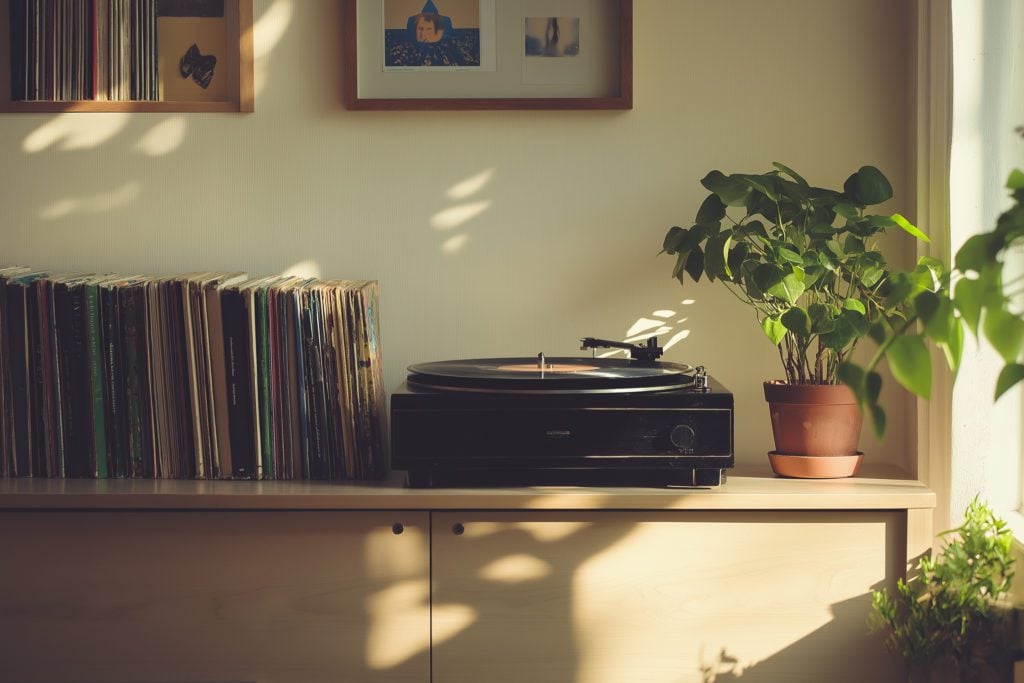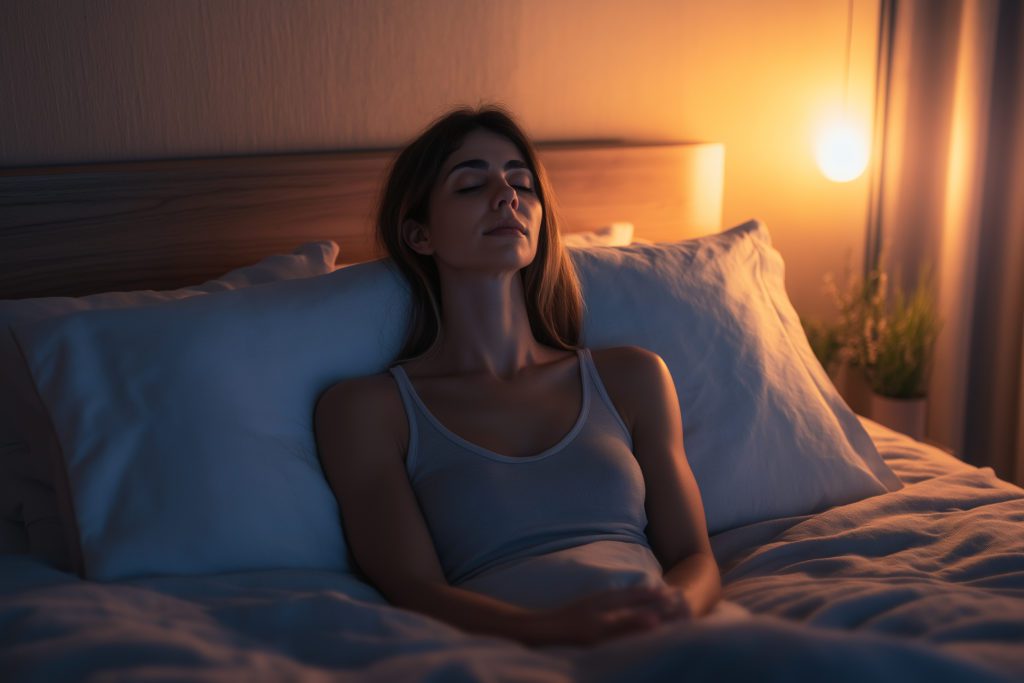
How Surroundings Impact Our Dreams
If you're wondering how your surroundings impact your dreams, read about the link between environment and dreams.

Does your sleep environment shape your dreams? While dreamland may seem like a faraway place that defies the laws of physics, dreams are actually heavily impacted by our physical surroundings. Noises, lights, and temperatures that surround you could all influence your dreams. More importantly, they can influence sleep quality. The good news is that anyone can take charge of their sleep environment. Here's everything you need to know about the link between environment and dreams.
Why Uninterrupted Dreams Are Important
Dreams heal the brain. It's believed that dreaming is essential for brain housekeeping, which includes cell repair, memory encoding, and toxin flushing. Let's dive into the environmental factors that impact dreams.
How Noise Impacts Dreams
A chaotic, noisy environment is detrimental to good sleep quality. Experts say that nocturnal environmental noise provokes measurable biological changes in the form of a stress response. If you're getting knocked out of rapid eye movement (REM) sleep, that means your dreams are being interrupted. If you're lucky enough to stay asleep, you might experience fitful, stressful dreams. Either scenario means you're waking up with:
- Daytime sleepiness
- Tiredness
- Annoyance, irritability and other mood changes
- Decreased cognitive performance and trouble concentrating
- Decreased well-being
Prolonged short sleep duration is linked with health risks that include cardiovascular disease, depression, diabetes, stroke, and more. People who live in busy, high-traffic areas are especially vulnerable. One study found that nighttime and daytime noise generated by things like cars, trucks, trains, and airplanes was linked with an increased risk of cardiovascular disease.
How to Reduce Noise For Better Sleep
Here are some tips to reduce noise pollution at home:
- Seal windows and doors
- Use soft furnishings that absorb noise
- Buy sound-reducing curtains
- Invest in soundproofing
- Upgrade to double or triple-glazed windows
- Block intrusive sounds with white or pink noise
- Purchase a noise-blocking sleep mask
Not all noise is beyond your control. Keeping televisions off, closing your door, and getting your household on track with a uniform bedtime can all help to ensure undisturbed dreaming and deep sleep.
Can You Strengthen Dream Quality With Background Noise?
Could some types of noise actually enhance dream quality? Millions of people use white and pink noise to fall asleep. The benefits of background noise as a sleep aid are actually inconclusive. However, there are some bright spots in research that point to background noise as potentially beneficial for boosting dream quality.
A 2016 study found that nappers who listened to pink noise forgot fewer words they were told to recall prior to falling asleep. Another study found that pink noise actually prolonged deep sleep and improved memory. As far as white noise, a 2021 study found that white noise significantly improved sleep in subjects complaining of difficulty sleeping due to high levels of environmental noise.
How Temperature Impacts Dreams
Heat can cause anxiety dreams to spike! It comes down to the fact that our internal body temperature naturally drops a few degrees to help us sleep before climbing back up when it's time to wake up. If body temperature increases prematurely, your body gets an unwanted wakeup call.
Have you ever felt irritable and "ready to snap" on a hot day? Sleeping in a hot environment basically triggers the same physiological functions that occur when we're anxious. A 2021 study found that air temperatures above 79 degrees Fahrenheit cause the body's anti-stress system called the parasympathetic nervous system to lower. This temperature threshold also lowers blood oxygen levels. This is a recipe for being crudely awakened from our dreams in an overheated state of irritability.
What can you do if hot sleep is cooling down your dream quality? If possible, control the temperature in your room to be below 79 degrees using air conditioning or fans. Some brands also sell cooling and anti-sweat mattress toppers and pillows with ventilation that prevents fabric from becoming stifling. In general, linen sheets are more breathable compared to other options. If your bedroom gets a lot of sunlight during the day, keep the blinds closed to avoid trapping heat. You can also consider regulating your bedtime body temperature by taking a cool shower just before turning in.
How Light Impacts Dreams
Sleeping with even just a little bit of light is bad for your health! While you may think you're in the clear if you're in the habit of falling asleep with a television or phone screen illuminating your room, research shows that even moderate light adversely affects cardiovascular and metabolic health. It can also kill your dream potential.
If you're into sleep health, you probably already know that humans live according to a 24-hour biological cycle called the circadian rhythm. Our sleep-wake cycles are dictated by "light" and "dark." When our retinas perceive light at the wrong time, this may disrupt circadian rhythm and sleep. The insomnia and sleep disturbances that follow can make it difficult to get into the REM state where the majority of dreams occur. When researchers measured the effects of artificial light on sleep, they found that exposure to dim light elevated heart rate and increased insulin resistance the following morning. It's important to note that the amount of light used wasn't even enough for a person to comfortably read.
To reduce light exposure while you are trying to sleep, turn off any electronics that emit light. You might also consider some blackout curtains.
Making Your Environment and Dreams Work in Harmony
While everyone loves a good dream, stressful and overly vivid dreams could indicate that environmental factors are causing physical stress. Waking up too many times because of external factors could harm everything from your memory to your heart.
Based on research, the ideal sleep environment is dark, cool, and quiet. If you've been experiencing unexplained wakefulness at night, your environment may be overstimulating. Pillow lets you track your sleep to measure sleep quality and waking patterns to help you determine if something could be "off" with your sleeping environment.

Written by
Emily Mendez
Emily Mendez is a former therapist and mental health author. She is one of the leading voices in mental health. Emily's writing has appeared in eCounseling, SonderMind, and more. Emily is frequently interviewed by Healthline, Fatherly, INSIDER, Family Circle, and other national media for her advice and expert opinion on the latest mental health topics.
Download Pillow
Get help
Press & News
Legal
Connect
X (Twitter)
Company
Copyright © Neybox Digital Ltd.



